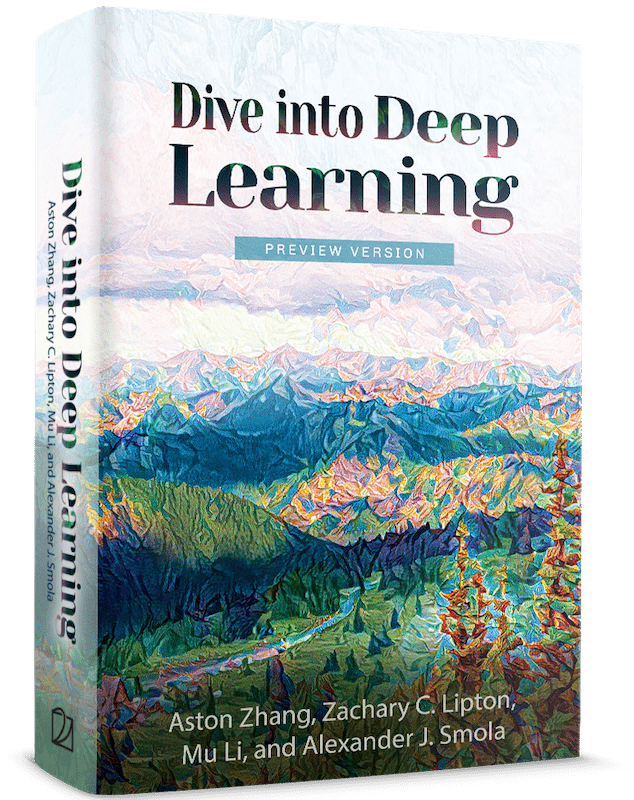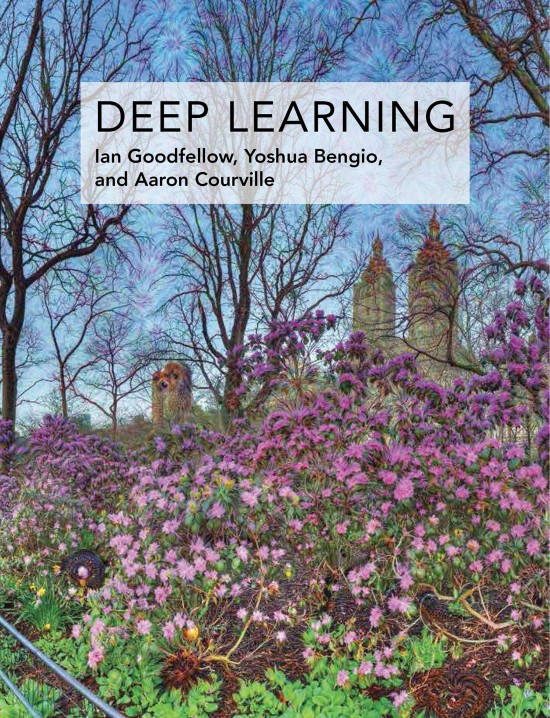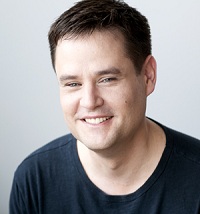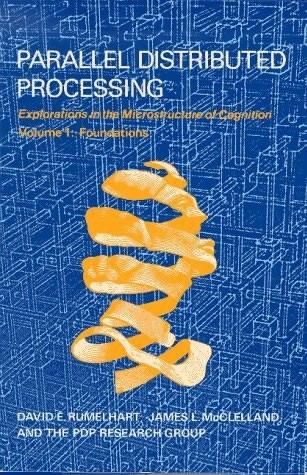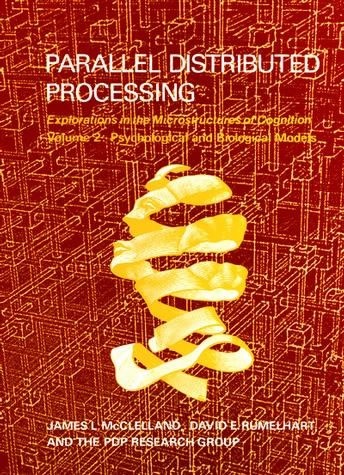Class Notes
A book containing class notes is being developed in tandem with this course; check it out.Schedule of Lectures
You can watch the recorded lectures on MediaServices.| Lecture | Date | Topics | Slides, Videos | Additional Materials | Quiz |
|---|---|---|---|---|---|
| 0 | Friday, Jan 03 |
|
Youtube |
No Quiz | |
| 1 | Monday, Jan 13 |
|
Slides (PDF) MediaServices Youtube |
The New Connectionism (1988)
On Alan Turing's Anticipation of Connectionism McCullogh and Pitts paper Rosenblatt: The perceptron Bain: Mind and body Hebb: The Organization Of Behaviour |
Quiz 1 |
| 2 | Wednesday, Jan 15 |
|
Slides (PDF) MediaServices Youtube |
Shannon (1949) Boolean Circuits On the Bias-Variance Tradeoff |
|
| 3 | Friday, Jan 17 |
|
Slides (PDF) MediaServices Youtube |
Widrow and Lehr (1992) Adaline and Madaline |
Quiz 2 |
| - | Monday, Jan 20 |
|
|||
| 4 | Wednesday, Jan 22 |
|
Slides (PDF)
MediaServices Youtube |
Widrow and Lehr (1992) Adaline and Madaline Convergence of perceptron algorithm Threshold Logic TC (Complexity) AC (Complexity) |
|
| 5 | Monday, Jan 27 |
|
Slides (PDF) MediaServices Youtube |
Werbos (1990) Rumelhart, Hinton and Williams (1986) |
Quiz 3 |
| 6 | Wednesday, Jan 29 |
|
Slides (PDF) MediaServices Youtube |
Backprop fails
to separate, where perceptrons succeed, Brady et al. (1989) Why Momentum Really Works |
|
| 7 | Monday, Feb 3 |
|
Slides (PDF) MediaServices Youtube |
Momentum, Polyak (1964) Nestorov (1983) Derivatives and Influences |
Quiz 4 |
| 8 | Wednesday, Feb 5 |
|
Slides (PDF) MediaServices Youtube |
Derivatives and Influence Diagrams ADAGRAD, Duchi, Hazan and Singer (2011) Adam: A method for stochastic optimization, Kingma and Ba (2014) |
|
| 9 | Monday, Feb 10 |
|
Slides (PDF) MediaServices Youtube |
Quiz 5 | |
| 10 | Wednesday, Feb 12 |
|
Slides (PDF) MediaServices Youtube |
||
| 11 | Monday, Feb 17 |
|
Slides (PDF) MediaServices Youtube |
CNN Explainer | Quiz 6 |
| 12 | Wednesday, Feb 19 |
|
Slides (PDF) Youtube MediaServices |
||
| 13 | Monday, Feb 24 |
|
Slides (PDF) Youtube MediaServices |
Fahlman and Lebiere (1990) How to compute a derivative, extra help for HW3P1 (*.pptx) |
Quiz 7 |
| 14 | Wednesday, Feb 26 |
|
Slides (PDF) Youtube MediaServices |
||
| - | Monday, Mar 3 |
|
Makeup 1-7 Quiz | ||
| - | Wednesday, Mar 5 |
|
|||
| 15 | Monday, Mar 10 |
|
Slides (PDF) Youtube MediaServices |
Quiz 8 | |
| 16 | Wednesday, Mar 12 |
|
Slides (PDF) Youtube MediaServices |
||
| 17 | Monday, Mar 17 |
|
Slides (PDF) Youtube MediaServices |
Labeling Unsegmented Sequence Data with Recurrent Neural Networks | Quiz 9 |
| 18 | Wednesday, Mar 19 |
|
Slides (PDF) Youtube MediaServices |
Attention Is All You
Need The Annotated Transformer - Attention is All You Need paper, but annotated and coded in PyTorch! |
|
| 19 | Monday, Mar 24 |
|
Slides (PDF) Youtube MediaServices |
Quiz 10 | |
| 20 | Wednesday, Mar 26 |
|
Slides (PDF) Youtube MediaServices |
||
| 21 | Monday, Mar 31 |
|
Slides (PDF) Youtube MediaServices |
Quiz 11 Part 1 |
|
| 22 | Wednesday, Apr 02 |
|
Slides (PDF) Youtube MediaServices |
Quiz 11 Part 2 |
|
| 23 | Monday, Apr 07 |
|
Slides (PDF) Youtube MediaServices |
Quiz 12 | |
| 24 | Wednesday, Apr 09 |
|
Slides Part 1 (PDF) Slides Part 2 (PDF) Youtube MediaServices |
Jensen-Shannon divergence (JSD) |
|
| 25 | Monday, Apr 14 |
|
Slides (PDF) Youtube |
Quiz 13 | |
| 26 | Wednesday, Apr 16 |
|
Slides (PDF) |
||
| 27 | Monday, Apr 21 |
|
Slides (PDF) Youtube |
||
| 28 | Wednesday, Apr 23 |
|
Recitations/Labs and Bootcamps
| Recitation | Date | Group | Topics | Materials | Youtube Videos | Instructor |
|---|---|---|---|---|---|---|
| 0.1 | Monday, Jan 02 |
Python Programming + Pytorch | Python + OOP Fundamentals |
Python Fundamentals OOP Fundamentals |
Eman Ansar, Yichen Xin, Carmel Prosper SAGBO |
|
| 0.2 | Numpy Fundamentals + JAX |
Numpy Notebook Broadcasting Pitfalls & JAX Notebook |
Numpy-1, |
Shubham Singh, Michael Kireeff |
||
| 0.3 | Notebooks and Conda Environments | Vishan Tanghang, Elvis Tata |
||||
| 0.4 | Pytorch | Pytorch Notebook | Shravanth Srinivas, Vishan Oberoi |
|||
| 0.5 | Computational Resources | Google Cloud Platform | VM Setup Script | Alexander Moker, John Liu |
||
| 0.6 | Google Colab | Notebook | Shubham Kachroo, Sadrishya Agrawal |
|||
| 0.7 | AWS | AWS Notebook | Tanghang Elvis Tata, Peter Wauyo |
|||
| 0.8 | Kaggle | AWS Notebook | Olatunji Damilare E., Floris Nzabakira |
|||
| 0.9 | PSC | Alexander Moker, Shrey Jain |
||||
| 0.10 | Data Handling and Processing | Datasets & Dataloaders |
Datasets P1 Notebook, Datasets P2 Notebook, Dataloader Notebook |
Vedant Singh, Christine Muthee |
||
| 0.11 | Data Preprocessing |
Audio Preprocessing Notebook, Image Preprocessing Notebook |
Vedant Singh, Eman Ansar |
|||
| 0.12 | Debugging and Problem Solving | Debugging |
Debugging Notebook (Part I) Debugging Notebook (Part III) |
Khushali Daga, Romerik Lokossou |
||
| 0.13 | What to Do When Struggling | Christine Muthee, Shravanth Srinivas |
||||
| 0.14 | HWs and Project Workflow Management | Workflow of HWs | Alexander Moker, Syed Abdul Hannan |
|||
| 0.15 | Wandb | WandB Notebook | Floris Nzabakira, Ahmed Issah |
|||
| 0.16 | Git | Sadrishya Agrawal, Shubham Kachroo |
||||
| 0.17 | Flow of the Project & How to Write a Report | Olatunji Damilare E., Yuzhou Wang |
||||
| 0.18 | Algorithmic Techniques | Losses |
Losses P1 Notebook, Losses P2 Notebook |
Massa Baali, Shrey Jain |
||
| 0.19 | Block Processing | Block Processing Notebook | Puru Samal, Eman Ansar |
|||
| 0.20 | Model Logistics | Paper to Code | Notebook | Massa Baali, Peter Wauyo |
||
| 0.21 | Pipeline | Puru Samal | ||||
| 0.22 | Distributed Training | Ishita Gupta, Harshith Arun Kumar |
||||
| 0.23 | Saving & Loading Model (Checkpointing) | Saving & Loading Notebook | Ahmed Issah, John Liu |
|||
| 0.24 | Cheating | Andy Ye, Eman Ansar, Dheeraj Mohandas Pai |
||||
| Lab 1 | Saturday, Jan. 18th |
Your First MLP | Colab Notebook |
Miya Sylvester, Vedant Singh |
||
| HW1 Bootcamp | HW1P1, HW1P2 | Slides | Shubham Singh, Shubham Kachroo, Shravanth Srinivas, Issah Ahmed, Vishan Oberoi |
|||
| Lab 2 | Friday, Jan. 24th |
Debugging in Deep Learning Networks |
Colab Notebook Data |
Kateryna Shapovalenko, Vishan Oberoi |
||
| Lab 3 | Friday, Jan. 31st |
Network Optimizations | Notebook |
Shubham Kachroo, Tanghang Elvis Tata |
||
| Lab 4 | Friday, Feb. 7th |
Computing Derivatives and Autograd |
Slides Notebook P1 Notebook P2 Solutions P1 |
Michael Kireeff, John Liu |
||
| HW2 Bootcamp | Saturday, Feb. 8th |
HW2P1, HW2P2 |
HW2P1 Slides HW2P2 Slides |
Sadrishya Agrawal, Michael Kireeff, John Liu, Tanghang Elvis Tata, Christine Muthee |
||
| Lab 5 | Friday, Feb. 14th |
CNN: Basics |
Sadrishya Agrawal, Shravanth Srinivas |
|||
| Lab 6 | Friday, Feb. 21st |
CNN Classification and Verification |
Shravanth Srinivas, Tanghang Elvis Tata |
|||
| Lab 7 | Friday, Feb. 28st |
RNN Basics |
Alexander Moker, Michael Kireeff |
|||
| Lab 8 (Pre recorded) | Friday, Mar. 8th |
Kaggle Competitions | Slides |
Christine Muthee, Shubham Singh |
||
| HW3 Bootcamp | Saturday, Mar. 9th |
HW3P1, HW3P2 |
HW3P1 Slides HW3P2 Slides |
Ishita Gupta, Tanghang Elvis Tata, Shubham Singh, Christine Muthee, Floris Nzabakira, Ahmed Issah |
||
| Lab 9 | Friday, Mar. 14th |
CTC, Beam Search |
Purusottam Samal, Ishita Gupta |
|||
| HW5 Bootcamp | Saturday, Mar. 15th |
Massa Baali | ||||
| Lab 10 | Friday, Mar. 21st |
Attention, MT, LAS |
Alexander Moker, Peter Wauyo |
|||
| Lab 11 | Friday, Mar. 28th |
Transformers |
Floris Nzabakira, Ahmed Issah |
|||
| HW4 Bootcamp | Saturday, Mar. 29th |
HW4P1, HW4P2 |
Purusottam Samal, Yuzhou Wang, Vedant Singh, Michael Kireeff, Ishita Gupta |
|||
| PSC HW4 Guide | Sunday, April 13th |
PSC | John Liu | |||
| Lab 12 (Pre recorded) | Friday, Apr. 4th |
VAE |
Purusottam Samal, Massa Baali |
|||
| Lab 13 | Friday, Apr. 11th |
NF and Stable Diffusion |
Yuzhou Wang, Massa Baali, Shrey Jain |
|||
| Lab 14 | Friday, Apr. 18th |
GAN |
Ishita Gupta, Peter Wauyo |
|||
| Lab 15 | Friday, Apr. 25th |
Graph Neural Networks |
Vedant Singh, Floris Nzabakira |
Assignments
| Assignment | Release Date (EST) | Due Date (EST) | Related Materials / Links |
|---|---|---|---|
| HW1P1 | Friday, Jan 17 11:59 PM |
Early Deadline: Friday, Jan 24 11:59 PM On-Time Deadline: Friday, Feb 7 11:59 PM |
|
| HW1P2 | |||
| HW1P1 Bonus | Friday, Apr 25 11:59 PM | ||
| HW1P1 Autograd | Friday, Apr 25 11:59 PM | ||
| HW2P1 | Friday, Feb 7 11:59 PM |
Early Deadline: Friday, Feb 21 11:59 PM On-Time Deadline: Saturday, Mar 1 11:59 PM |
|
| HW2P2 | |||
| HW2P1 Bonus | Friday, Apr 25 11:59 PM | Autolab | |
| HW2P1 Autograd | Friday, Apr 25 11:59 PM | Autolab | |
| HW3P1 | Saturday, Mar 1 11:59 PM |
Early Deadline: Friday, Mar 14 11:59 PM On-Time Deadline: Friday, Mar 28 11:59 PM |
Piazza |
| HW3P2 |
Piazza |
||
| HW4P1 | Friday, Mar 28 11:59 PM |
Early Deadline: Friday, Apr 11 11:59 PM On-Time Deadline: Friday, Apr 25 11:59 PM |
Piazza |
| HW4P2 |
Piazza |
Documentation and Tools
Textbooks
This is a selection of optional textbooks you may find useful
